Transit Issues
Public transportation is a critical component of smart growth. By allowing people to travel without a car, transit supports vibrant, walkable communities that offer access to jobs and amenities for all people, not just those with cars.
New Jersey is fortunate to have one of the most extensive transit systems in the country, including commuter rail, buses, light rail, subways and ferries. That network helps power the state’s economy by giving millions access to jobs, goods and services, while also helping reduce auto congestion and greenhouse gas emissions. It is vital that appropriate investments in this system continue to be made, especially as the state’s transit-rich cities continue to revitalize, in order to keep New Jersey economically competitive.
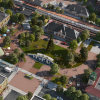
New Jersey’s transit towns are experiencing something of a revival in the last decade and a half. This is an important positive development, since transit-oriented development (TOD) advances multiple societal goals.

“Every decision about transportation is an opportunity to build a clean, healthy, and more prosperous future,” declared Christopher Coes, Assistant Secretary, U.S. Department of Transportation (DOT) as he provided prepared remarks to open the session “Delivering Walk-Bike-Ride Transportation in New Jersey” at the 2023 Planning and Redevelopment Conference co-hosted by the NJ Chapter of the American Planning Association and New Jersey Future.
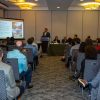
Transit-friendly planning is a proactive, transit-focused approach developed by NJ Transit that is applicable to any community. Transit-friendly planning and transit-oriented development (TOD) are important components of smart growth because they allow people to live, work and play without having to rely on a car.
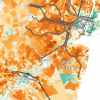
Electric vehicles are great, but they won’t reduce greenhouse gas (GHG) emissions in the transportation sector fast enough, nor will they do anything to alleviate congestion. This past October, the United Nations published the Emissions Gap Report 2022, declaring that an important action for the transportation sector is to “integrate land use and transportation planning to prioritize public transit over private automobiles.”

Despite being the most densely populated state in the country with over 150 train station towns, New Jersey is not a safe place for pedestrians of any age. In our effort to reduce car dependency, increase pedestrian safety, and encourage placemaking that serves the public, NJ ended 2022 with several announcements designating funds for advancing pedestrian and bicycle safety and transit-oriented development (TOD), indicating that the administration recognizes the importance of creating and fostering transportation options besides driving.

2016 Smart Growth Awards: The F. Berg Hat Factory Complex in Orange will be redeveloped into residences and artists spaces, and will serve as an anchor to the Valley Arts District.
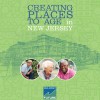
There is a significant mismatch in New Jersey between where large numbers of older residents live and which municipalities are most prepared to accommodate them. This report matches every municipality against four age-friendliness indicators, and analyzes the degree to which New Jersey’s older residents are living in places that, from a land-use perspective, are not prepared to accommodate their changing needs. January 2014.
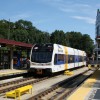
New Jersey has 243 transit facilities, ranging from small single-track stations to major multi-line hubs. The unique characteristics of each station, of its immediate neighborhood, and of its surrounding municipality mean that a wide variety of development strategies should be brought to bear in order to maximize each location’s potential. This report shows how data assembled by New Jersey Future can be used to make decisions on how to target various kinds of transit-oriented development efforts. September 2012.

2016 Smart Growth Awards: A new multi-use building comprising retail, rental apartments and a parking garage, will bring an influx of new residents near Bloomfield’s train station.
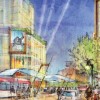
Two plans, an innovative zoning code, a feasibility study and three projects are winners of New Jersey Future’s 2012 Smart Growth Awards. Joseph M. Taylor receives the Cary Edwards Leadership Award.
See all New Jersey Future Blog posts and articles in this category »
Reports, Presentations and Testimony
- 07/15/2019: Comments on Draft Energy Master Plan
- 05/09/2019: Letter to New Jersey Legislators on Increased Funding for NJ Transit in State Budget
- 09/20/2018: Clean and Reliable Transportation Comments
- New Jersey Future Demographic Trends by Age September 2017
- New Jersey Future 2017 Gubernatorial Platform
- Creating Places To Age Bergen-Passaic Supplement
- Targeting Transit -- New Jersey Future
- A Citizen's Guide to Transit-Oriented Development
- Getting to Work 11-08











